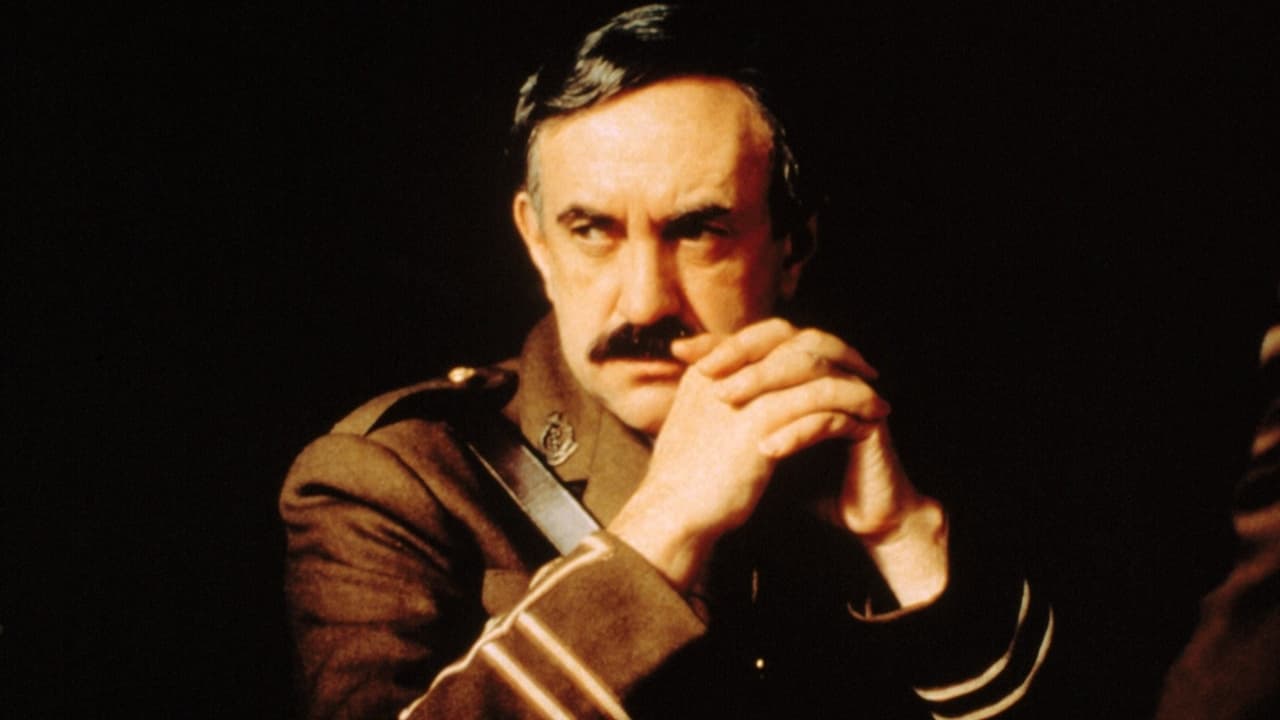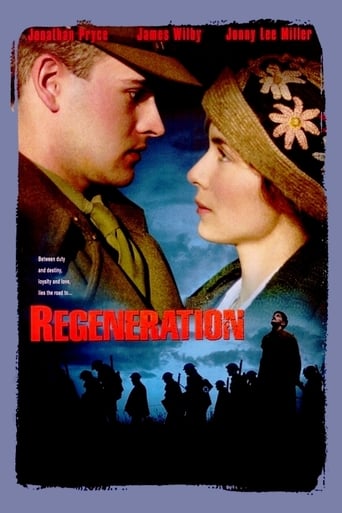

It’s fine. It's literally the definition of a fine movie. You’ve seen it before, you know every beat and outcome before the characters even do. Only question is how much escapism you’re looking for.
... View MoreThis movie feels like it was made purely to piss off people who want good shows
... View MoreGreat story, amazing characters, superb action, enthralling cinematography. Yes, this is something I am glad I spent money on.
... View MoreBlistering performances.
... View MoreOne of the very few war movies I'm still willing to watch. Unlike some earlier reviewers here I do not see any real link with 'Saving Private Ryan'. Spielberg (to me) is only really interested in making contemporary political parallels (I suspect re Israel) and of course his bottom line (he is notoriously parsimonious, and nothing wrong with that). Regeneration is a very good crack at an even better book in the Pat Barker series. That is its mission, a study of psychological damage done to young minds at war which is not usually reflected in the casualty figures. I know some of this from the recollections of my grandmother, of her father who survived the war, but for only a few years ''somewhat troubled''. I have his Military Medal here now. He was an 'Old Comtemptible' but not at all happy of having survived. I am not impressed by the artistic integrity of this fine film being so arrantly compromised in the 'Behind the lines' (US)version. Short changing buyers of this version and insulting their intelligences. Especially with such fine performances from all here, especially the incomparable Pryce and the only female reference in the film, the delightful Tanya Allen.
... View MorePat Barker's novel was completly destroyed when they made this film, the film takes a thoughtful book and replaces it with a load of mindless crap!The film jumps around the sequence and events and adds things to the plot to make the film more emotive. The acting was awful especially the guy who played Sasson, one of the greatest war poets. However Jonny Lee Miller was good although his character lacked definition as they left so many vital scenes out.Although the film does try to bring to life Pat Barker's novel it fails in a miserable pile mud and if it were fighting in world war 1 then it be shot down or shelled before it took a step. The exgeration of why Sasson got his MC was appalling, i do not belive it possible to take a german trench single handedly, the film was just pure bolocks seeing as Sasson actually got his MC for saving life not taking life. The film seems to ignore the fact that Pat Barker has taken facts and woven them into a story. The facts are history and the film makers should have never changed them, Sasson and Owen, and Rivers for that matter, are national hero's who should not be sidelined by a film to make the story seem more exciting.
... View MoreThis film is not too bad. Although I did not enjoy most of the film too much, there were certain scenes which were definitely worth while. My favorite scenes were the war scenes, the scenes with Sassoon (especially the ones with poetry) and the last scene. As a result of this film, I must really urge you to read some of Sigfried Sassoons work and also some of Owen's. I read some in school and I found that some of their work is really fantastic. 6,5 out of 10
... View MoreThe lush, dark green of the English countryside, it's brooks & obscuring fogs stands starkly in contrast to the unrelenting greyness of the mud, the mire and the bloody reduction of men. A loosely fictionalized portrait of Sassoon's hospital interlude and a dramatization of the question he raised in his Protest. Compelling on all levels.
... View More